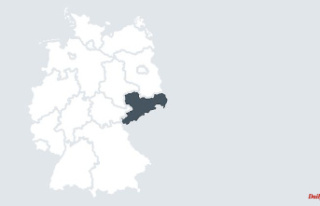There are hundreds of dead spots in the Ore Mountains, in Saxon Switzerland and in the Vogtland. But does Saxony have to be supplied with a mobile network everywhere?
Dresden (dpa / sn) - There are numerous dead spots in Saxony, especially in the Ore Mountains, in Saxon Switzerland and in the Vogtland. This emerges from a response from the Federal Ministry for Digital and Transport to a request from the left. According to this, in October of this year the ministry counted a total of 323 areas in the Vogtland district, 376 in the Erzgebirge district and 922 in the district of Saxon Switzerland-Eastern Ore Mountains without any mobile phone coverage. In and around the big cities in Saxony - Chemnitz, Dresden and Leipzig - the people are therefore mostly supplied nationwide.
However, not every dead spot is automatically a problem, says Frank Fitzek, professor and head of the "Deutsche Telekom Chair for Communication Networks" at the TU Dresden. "You would have to look at each dead spot individually and decide whether a network connection is needed here." Newer mobile phones would be supported by satellite technology. For example, calls for help could be made or the devices located in a dead spot. A mobile phone network might not be needed there under certain circumstances.
There are various reasons why coverage in Germany is not nationwide, said the professor: "In some regions there is no coverage because it is not economically worthwhile for the providers." There were also numerous cases in which the population prevented the providers from setting up mobile phone masts.
Nevertheless, according to Fitzek, the federal government is demanding that the providers cover as extensively as possible. "And that too in places where it makes no economic sense." If the number of dead spots is to be reduced to zero, the providers would have to be given financial support. "Otherwise, the question always remains: Who should actually pay for it?"
There is already financial support, however, explained the State Ministry of Economics. The expansion of mobile communications is also supported by the federal government's mobile communications infrastructure company. The fact that private providers and not the state - as in other countries - expanded the network in a competition was a conscious decision: "One business model can be a very far-reaching supply at higher prices and another business model can be a less far-reaching supply at lower prices ." According to the ministry, however, actors involved have recognized the need for improvement and developed ways to improve care.












